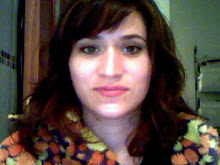In-Depth Report on Growing Incidence of Niqab in Kuwait Post-Invasion
The niqab is a face covering that leaves the eyes in view but leaves hidden below the nose. It is worn with the abaya and can vary in intensity. Some leave only slits for the eyes and are tied around the back (seen on many tourism refugees coming from KSA to KW), but most that I see here in Kuwait leave the forehead, eyebrows and eyes free.
Al-Watan Daily wrote a long report on peoples' perceptions of the increased use of the niqab by women in Kuwait since the invasion, mostly linking this phenomenon to greater influence and ties between in Saudi Arabia to the area.
The article, interestingly enough, touches upon some more sensitive issues of wearing the niqab and the anonymity this provides for actually conducting illegal activities-namely prostitution. I was not expecting this to be covered in the piece.
"Since the 1991 liberation of Kuwait from the Iraqi occupation force, the country has witnessed a rise in the number of women wearing ''niqab'', the cloth covering the entire face of a woman except for slits for the eyes, not to be confused with the ''burqa'', which covers the top half of the face and also is seen often.
The majority of people interviewed by Al Watan Daily to speak about the rise in women wearing the niqab in Kuwait were of the opinion that it has become a prevalent phenomena due to an increase of religion''s role in politics and society. Many also said that the relationship between Saudi Arabia and Kuwait has also witnessed stronger ties since the liberation, subsequently impacting Kuwaiti society regarding the niqab.
Sana''a, a Kuwaiti in her late 40s, told Al Watan Daily, "Women in Kuwait changed a lot after the invasion; more women are wearing the niqab than before the invasion, and I think the figure has increased by more than 40 percent. I believe this happened because the culture in Kuwait has changed into a more conservative strand, and it becomes a common thing that everyone imitates."
Ola, an Egyptian teacher, commented that women in Kuwait changed after the Gulf War in the earl 1990s "because they became more influenced by their neighboring countries, such as Saudi Arabia and Iran."
"The majority of women wearing the niqab in Kuwait are Bedouins, and they are divided into tribes, and every tribe is very religious. Nearly all the Bedouin women in these tribes wear the niqab either because they are forced to by their parents or husbands, or because it is considered a traditional practice they are used to performing and must do as part of their social obligations," she explained.
Amani, a Kuwaiti Bedouin wearing the niqab said, "In our tribe, we all have to wear the niqab; it is a practice that we have to obey. We have to follow the rules and regulations of our society. As we grow up and become more mature, we all have to wear the niqab from the age of 15, and sometime younger than that."
Tahani, a Kuwaiti woman, added, "Niqab has become very common in Kuwait as the population of the Bedouin in Kuwait increased; each family is large, with as much as eight or nine girls, and they are all told to wear the niqab."
Surprisingly, some women wear the niqab to hide from something they are doing, while others wear it to attract men with the enhanced beauty of their eyes and the mystery associated with what is underneath the garment.
Huwayda, who works in one of the ministries, commented on this issue; "Not all Muslims are good and proper Muslims, and the same thing goes for the hijab and niqab. Not every woman wearing the hijab, and especially the niqab, to cover their face are doing this for religious purposes. We all know that some prostitutes tend to cover their faces behind the niqab to be able to do what they want without revealing their identity. There are women that tend to use the niqab as a disguise to hide their improper behaviors."
Huwayda''s friend Mona noted that many women wearing the niqab put full makeup over their eyes to accentuate the beauty of their eyes, "and they think that this is the way to attract men towards them..." (for the rest of the article, please click here)




Very ninteresting!